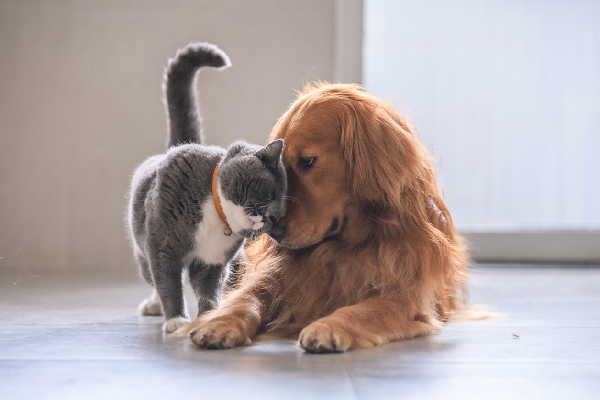
If you own a pet, there is a good chance that you consider your furry-friend family. Yet, even the most dedicated pet owners likely have not considered what will happen should they pass away. However, the reality is that pets are fairly dependent on their owners. Thus, you want a plan in place for their care should you die before them.
Incorporating a pet planning component in your estate plan ensures that your pet(s) receive care after should the unexpected occurs. By leaving your pet (and money for care) to someone you trust, you ensure that they receive care. However, if you had not previously considered including your pets in your estate plan, you may find yourself wondering what estate planning for your pet entails. Keep reading for a look at the most frequently asked questions we receive about pets and estate planning.
What Happens If I Don't Include My Pet in My Estate Plan?
Unfortunately, many people do not think about what will happen to their pets after they die. However, without the proper estate planning measures in place, you have no say in what happens to your pet once you are gone. Then, they could end up neglected or in a shelter. Unless you have made arrangements for the care of your pet upon your death, your pet will go to the residuary beneficiary named in your will (this is the person you've named to receive the remainder of your estate after any specific gifts have been paid out by your estate). If you do not have a will, your estate will be divided up in accordance with your state's intestacy laws.
Unfortunately, pets are considered property, and they will be treated as such in probate court. This could mean that your pet goes to someone who will not take care of them properly (or who does not have the means to care for them). Then, they could wind up in a shelter. Sadly, this is an all too common occurrence, as it is estimated that over half a million pets wind up in shelters each year across the country because arrangements were not made for them before their owner died. Fortunately, this can be prevented by including a pet planning component in your estate plan.
I Made Arrangements With a Friend. Isn't That Enough?
Oftentimes, people think that they do not need to make formal arrangements for their pets. However, without any legal arrangement, there is no way to ensure that your pet ends up with the person you chose. While you may view your pet as family, the law views them as property. Thus, a verbal agreement does not ensure a legal transfer of ownership once you are gone.
You need something legally binding in place in order to ensure that your wishes are followed regarding the care of your pet after your death. You should make sure to name backup successors to care for your pet in case your first choice guardian is no longer willing, or able, to do so following your death. This will ensure that your pet is cared for properly once you are gone.
What Are My Options for Including My Pet in My Estate Plan?

Knowing how important including your pet(s) in your estate plan is in order to ensure that they are cared for once you are gone, you may find yourself wondering what your best option is for incorporating your pet into your estate plan. While you cannot leave your pet money in your estate plan since they are considered property, you have several options you can choose from that will help to ensure that your pet is looked out for after your death. Here is a look at a few of the most popular options.
Include Your Pet in Your Will
The simplest way to ensure the care of your pet is to leave him/her to someone in your will or living trust. After you die, your designated caretaker will become your pet's new owner. However, just because the person you chose wants to look after your pet, this does not necessarily mean that they can. You may then want to consider leaving that person money in your will or trust for the care of your pet.
Any money left for them in your will becomes theirs. Then, they can use it as they see fit without any legal recourse if they use it for personal matters. It is then important that you choose someone you trust to care for your pets.
Establish a Pet Trust
Due to the potential complications of leaving your pet to someone in your will, your best option may be to create a separate trust for the protection and care of your pet. With a pet trust, you will have more control over how your pet is cared for once you are gone. When you create the trust, you can provide terms dictating how you want your pet to be cared for once you are gone, and you can fund the trust with money that can only be used for the care of your pet. This helps to ensure that your wishes are followed, as your trustee can face legal repercussions if they do not follow the terms laid out in the trust.
Depending on the estate laws in your state, you will either be able to create a pet trust that lasts for 21 years after your death, or you may be able to create a trust that lasts for the lifetime of your pet. Creating a pet trust gives you the most flexibility and control over how your pet will be cared for following your death. You can even dictate how any remaining funds in the trust should be dispersed following your pet's death.
How Do I Know Which Option Is Best for Me?
Considering our furry friends often feel like family members, you are not alone if you find yourself struggling to decide what route is best for providing for your pet's care once you are gone. Fortunately, you do not have to go through this process alone. An experienced estate planning attorney can play a vital role in helping you to create a plan that will ensure your wishes for your pet's care are followed once you are gone. Feel free to contact us for advice on the best way to include your pet in your estate plan.
For more information please request a copy of our Legal Services Schedule (PDF format).
![]()